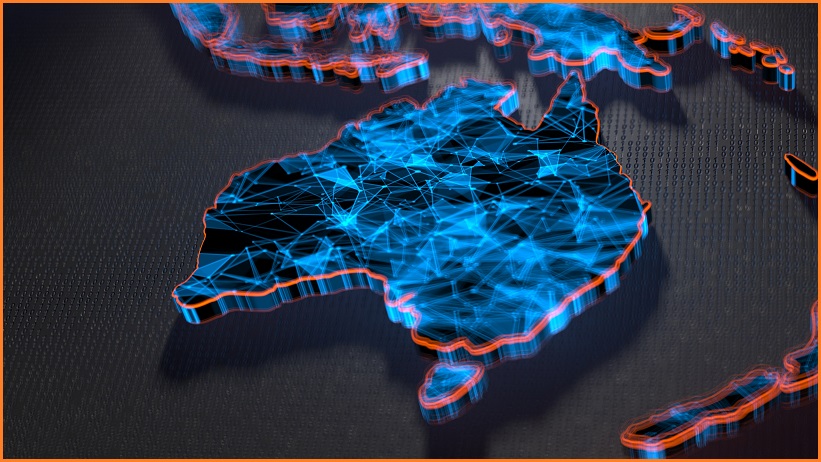The federal government has repatriated a senior Microsoft executive to lead its efforts to coalesce Australia’s artificial intelligence (AI) industry around the newly launched National Artificial Intelligence Centre (NAIC).
Launched as a key deliverable under the government’s $124.1m AI Action Plan, the new facility “will play a pivotal role in ensuring we can take advantage of AI technologies,” Minister for Science and Technology Melissa Price said as the NAIC was launched.
“This investment will strengthen Australia’s ability, lift our global competitiveness through AI, and attract new investment and world-leading specialists,” she added, noting that one key goal was to “help address barriers” preventing small and medium businesses (SMBs) from developing AI and related technologies.
Co-located within CSIRO’s Data61 data arm – which recently launched its own Data61 Artificial Intelligence Roadmap – the Canberra-based centre will complement four planned AI and Digital Capability Centres in a $53.8m combined investment that will facilitate collaboration between government, industry, and research bodies to create what CSIRO calls an “Australian AI and digital ecosystem”.
“More and more companies around the world are turning their attention to Australia to help design and develop new technologies to implement in their global operations,” the organisation notes.
Its establishment – which will be marked with a number of NAIC events in early 2022 – will provide a centre of gravity for the government’s efforts to attract “new investment and world-leading specialists” in AI, Price said.
This recruitment effort includes, among other things, $47.3m in AI-related scholarship programs that are expected to attract more than 460 “home-grown, job-ready specialists” in the technology.
First off the rank will be centre director Stela Solar, an Australian expat who has spent the past decade leading Microsoft efforts in unified communications, partner alliances, Internet of Things sales and, for the past two and a half years, serving as global director of Microsoft’s AI solution sales and strategy.
“Australians are well regarded around the world [and] Australia has deep AI expertise and investments which already contribute to the global AI community,” Solar said as her appointment was announced.
“Our opportunity with the National AI Centre is to stitch together the fabric of our AI ecosystem and work together to lift our capability to a leadership position…. Countries that have a coordinated vision around how AI can best be used are the ones that benefit most from the technology because these become the highways for trusted innovation.”
Bootstrapping an industry
AI is one of nine key ‘critical technologies in the national interest’ that were outlined last month in the Morrison government’s Action Plan for Critical Technologies.
Comparable strategies in fields like advanced manufacturing, quantum computing, and clean energy have engendered a similar industry-focused investment approach – echoing the success of the national network of Cyber Security Innovation Nodes that has coalesced Australia’s cybersecurity industry under the auspices of AustCyber.
The CSIRO’s Artificial Intelligence Roadmap report predicted the industry would be worth $22.17 trillion to the global economy by 2030.
With leading world economies investing heavily in AI – China and the US have become locked in a race to dominate the exploding sector – industry stimulus has become crucial.
The centre’s success will be tied to aligning research, investment, and skills development with local and global market opportunities – but identifying those, UNSW laureate fellow and scientific professor of artificial intelligence Toby Walsh said during ASIAL’s recent Security Exhibition and Conference, remains a key challenge going forward.
“We often joke that AI is all the things you can’t yet do with a computer,” he said, “and anything that you can do by computer gets renamed.”
“It used to be that speech recognition was something that was called AI, and now that’s something that works, and many people don’t think of it as being part of artificial intelligence anymore.”
Calling AlphaGo’s 2016 defeat of Go champion Lee Sedol a ‘Sputnik moment’ that convinced governments they had to get truly serious about AI – spurring billions in investments from the likes of China, India, and South Korea – Walsh said Australia risked being quickly outpaced.
“China really woke up as it started to invest billions into AI,” he said, “and has made it very clear that it wants to win this race, both in economic dominance and military dominance – and they’re going about that in short order.”
It is “somewhat troubling” that Australia has invested much less in AI to date, he added.
“At the moment the Australian government has only committed [$124m] to AI,” he said.
“I wish it was in the billions like in many other places.”










